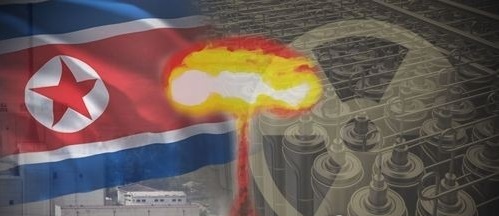South Korea and the United States are considering curbing oil exports to North Korea as part of punitive measures against its possible additional nuclear test, diplomatic sources said Thursday.
Multiple news reports have raised the possibility of the North carrying out its sixth nuclear detonation test by pointing to increased excavation activity at its Punggye-ri test site.
 |
(Yonhap) |
According to the sources, Seoul and Washington are considering making a push to curb oil exports to the North through the UN Security Council in case of an additional nuclear test.
That is in line with what their nuclear envoys agreed upon last week in Seoul to toughen punitive measures against Pyongyang if it goes ahead with a major provocation.
The plan will require cooperation from China in that it is the largest supplier of oil to the North.
Cho June-hyuck, a foreign ministry spokesman, told a regular press briefing that the chances are "high" that the North will make a "strategic" provocation either in time for the summit between China and the US, expected to take place early next month or the birthday of its late founder Kim Il-sung on April 15.
Cho noted that the North could be pushing for an additional nuclear test or launch of an intercontinental ballistic missile.
"(We) are making thorough preparations not just to maintain a robust military readiness posture but also to make a swift response and induce strong punitive measures through a UNSC resolution or a unilateral sanction regime in case of a provocation," he said.
The two allies are also said to be working on preventing the North from sending its workers overseas in order to make it harder to get its hands on hard currency through labor exports.
The North conducted its fourth and fifth nuclear tests in January and September last year, drawing strong condemnation from the international community.
The UNSC responded by adopting the toughest-ever sanctions including placing a ceiling on the North's exports of coal, a major source of money suspected to be used in advancing its nuclear weapons capability. (Yonhap)





![[Exclusive] Hyundai Mobis eyes closer ties with BYD](http://res.heraldm.com/phpwas/restmb_idxmake.php?idx=644&simg=/content/image/2024/11/25/20241125050044_0.jpg)
![[Herald Review] 'Gangnam B-Side' combines social realism with masterful suspense, performance](http://res.heraldm.com/phpwas/restmb_idxmake.php?idx=644&simg=/content/image/2024/11/25/20241125050072_0.jpg)

